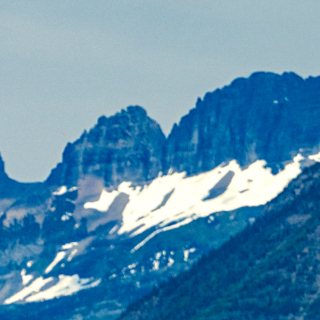Current Programming
Current Programming
The O’Connor Center for the Rocky Mountain West is a regional studies and public education program focused on building a better understanding of the rich past and promising future of the Rocky Mountain West region of the U.S. and Canada. Regions emerge from real connections between people and places. The Center honors these connections by affirming the growing importance of land-based and regionally defined places in economic, social, and cultural life.
Working up and down regional scales across academic disciplines, the Center engages in wide ranging activities in research, writing, public education, and teaching. Current programming is focused in three areas:
Regional history and culture - Only in the telling of the region’s stories can the patterns of living here be revealed and understood. Through public presentations, conversations, and scholarly research and writing – we offer opportunities to document, reveal, and celebrate the region’s culture, heritage, and historical development, weaving varying threads of our regional identity. The region’s unique history, literature, and arts are all part of this work, humanistic inquiry, and educational outreach.
Regional growth and development - Throughout history, regions that prosper, both materially and culturally, are ones that understand their past as well as continually engage in shaping their future. An important aspect of the region’s ongoing development is reflected in the changing economy, which is altering all aspects of life and living in the region. It is important to study and learn from this change, adding to our understanding of both the region’s present condition, emerging trends, and future possibilities.
Regional journalism – The Center tries to serve as an important and credible resource for people in the state and region in understanding the region’s changing storyline and narrative through our programs in regional journalism. We report on and the region’s most important stories of growth and change, population trends and demographic shifts, changes in the economy, and activities affecting the region’s high quality environment. This extends to stories on public lands and their management, land and water conservation and use, major industry trends, developments in health care and education, Native American affairs and public affairs more generally. And because of its capacity to cause transformative change in the region, we have a particular focus on large-scale energy development, trends, and impacts in our reporting.
Our journalism work occurs primarily through our web-based regional news service called Mountain West News and our radio program called Mountain West Voices. We focus on stories of all aspects of life and living in this unique region we call the Rocky Mountain West.
From population growth and economic restructuring, to energy development and public lands management, the Rocky Mountain West faces unique challenges in its continuing change and development. We attempt to bring additional information and understanding to important trends and public affairs in our region, working in partnership with others to explore both our past and possibilities for the future.
Center personnel also regularly teach or present at the University in several departments, adding regional context and understanding to undergraduate and graduate teaching at the University. And Center staff make presentations at a wide range of meetings and forums across the region, advancing broader public education on regional trends and conditions.
